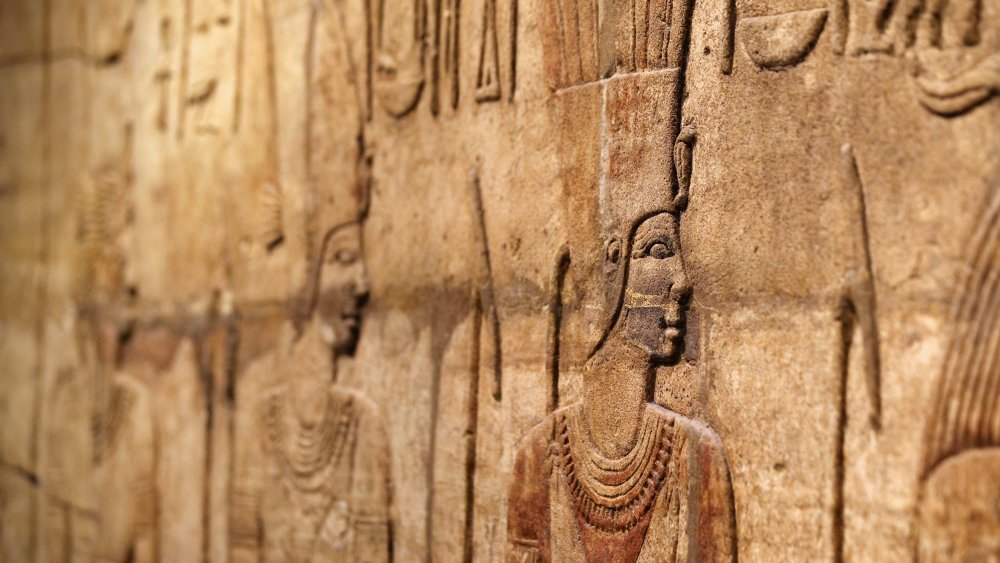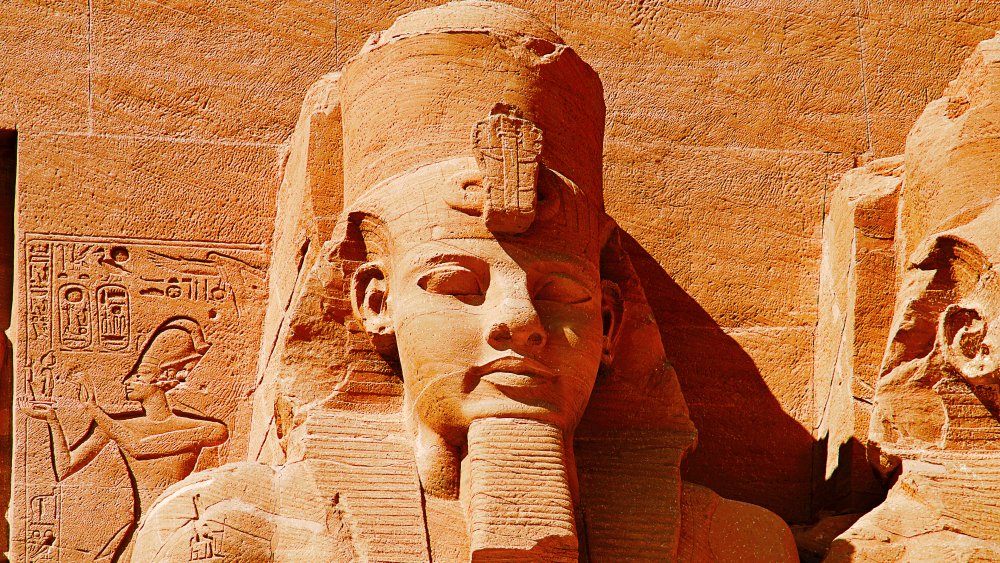The Secret History Of Egypt's Black Pharaohs
When most people think of ancient Egypt and its omnipotent rulers, they generally think of King Tut, and the physical features he's commonly depicted with — including the light brown skin the color of almond or sienna. In some cases this would be accurate, but Egypt was a very cosmopolitan culture with a diverse mix of ethnicities.
In fact, there was a time when Egypt's rulers were black, hailing from the kingdom of Kush, located in modern-day Sudan and Upper Egypt, according to KPBS. Around 750 BC they conquered Egypt, enthroned their own pharaohs and ruled Egypt for nearly a century, in what would be known as the Nubian Dynasty, or Egypt's 25th Dynasty.
Rather than do away with Egyptian culture, the Nubian kings assimilated into Egyptian culture while adding some unique Kushite elements, and ended up uniting Upper and Lower Egypt with Kush to form one of the largest empires in Egyptian history. This period also marked the first widespread construction of pyramids since the time of the Middle Kingdom, nearly 1000 years before, according to David Silverman's Ancient Egypt.
The lasting legacy of Egypt's black pharaohs
Why don't more people know about Egypt's black pharaohs? A big part of it has to do with shortsighted pride and racism. For the Egyptians that would once more assume power after the reign of the Kushites, to be conquered was not a point of pride, and their recorded history largely overlooked the period of Kushite reign. Having already been relegated to the historical shadows once, the black pharaohs were again slighted by famous archaeologist George Reisner, who excavated most of the important historical Kushite sites. A product of an era of increased racial bigotry, Reisner "could never get past his racial myopia and accept that these dark-skinned African people had built such an advanced and powerful society," according to KPBS.
Though the Nubian Dynasty lasted less than 100 years, from 744 to 656 BC, it is credited with restoring traditional Egyptian values, culture, art and architecture during the rule of its five pharaohs. Despite not always getting their historical due, we have Egypt's black pharaohs to thank for much of the Egypt we know today.

